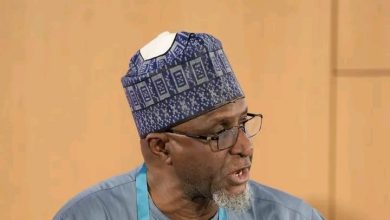Community Pharmacists Decry Illegal Drug Practices in Federal Hospitals, Demand Urgent Government Action
The Association of Community Pharmacists of Nigeria has raised alarm over illegal drug operations in federal hospitals.
The group urged the government to act quickly and punish those violating pharmaceutical laws.
The Association of Community Pharmacists of Nigeria (ACPN) has expressed concern over what it described as growing illegal pharmaceutical operations across several Federal Health Institutions (FHIs) in the country, urging the Federal Government to take swift action and sanction all those involved.

Speaking on behalf of the association, the National Chairman, Pharm. Ezeh Ambrose Igwekamma, said some pharmaceutical companies and their superintendent pharmacists have been operating unlawfully within public hospitals, often with the silent approval of hospital management and regulatory agencies.
He condemned what he called a disturbing pattern of disregard for established laws and professional ethics, stressing that it is unacceptable for government institutions to enable the very infractions they are supposed to regulate.
Pharm. Ezeh accused the Federal Ministry of Health (FMoH) of ignoring the situation, alleging that several unregistered private pharmacies have taken over drug supply and sales in federal hospitals under questionable Public–Private Partnership (PPP) arrangements.
He also criticized the ministry’s previous experiments with projects such as Medipool, describing them as illegal schemes that have weakened the integrity of Nigeria’s public drug distribution framework.
According to him, the management of drug procurement and distribution in public health facilities should strictly follow the provisions of Decree 43 of 1989 (now Cap 252 LFN 2004), which established the Essential Drug List and the Drug Revolving Fund (DRF).
He explained that the DRF was designed to ensure continuous access to affordable medicines, noting that only trained pharmacists should oversee procurement, inventory control, and financial management, as outlined in the official DRF manuals.
Pharm. Ezeh lamented that many hospital Chief Medical Directors (CMDs) and Medical Directors (MDs) have mismanaged DRF operations over the years, leading to persistent drug shortages, poor accountability, and irregular supply chains in federal hospitals.
He cited the DRF model implemented by the Department of Pharmacy at the National Orthopaedic Hospital as one of the most successful examples in Nigeria’s public health history, urging the government to study and replicate it nationwide to restore order and transparency in the system.



